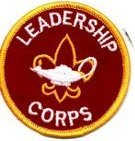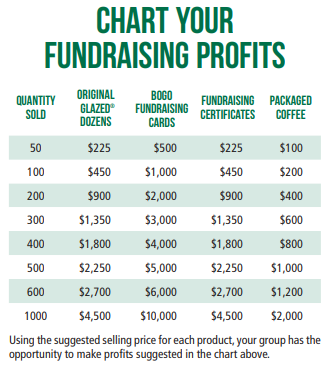-
Posts
1179 -
Joined
-
Last visited
-
Days Won
32
mrkstvns last won the day on November 21 2019
mrkstvns had the most liked content!
Profile Information
-
Gender
Male
-
Location
Deep in the heart of Texas
Recent Profile Visitors
7143 profile views
mrkstvns's Achievements

Senior Member (3/3)
486
Reputation
-
How do the total trek costs of an official NT trek compare to a "roll your own" trip using a commercial outfitter?
-
Interesting! I'd never heard of Burgess, so went and did a little Googling. You're right. The guy wrote a lot of stories that would make good source material for a Cubmaster or Den Leader looking to come up with some new campfire stories for young scouts. I found that, since Burgess did a lot of his writing early in the 20th century, much of his work is now within the public domain. The Project Gutenburg web site has several of his stories online, free for the downloading and reading: http://www.gutenberg.org/ebooks/author/717
-
I think it could be cool to plan some activities and then organize "boxes" around things that are traditional scouting areas of expertise, but that few troops or camps really have much experience with these days. For example, Pioneering or Signaling.
-

Environmental Education Award Program - EPA/BSA
mrkstvns replied to RememberSchiff's topic in Advancement Resources
I think what David really meant was "I'm fine with that as long as it requires scouts to understand genuine science and to not get sucked into inane political discussions that encourage ignorance or intolerance of informed scholars." -
The Guide to Advancement is clear. A scout who begins working on a merit badge is allowed to complete it using the requirements in effect at the time he begins. Requiring a scout to get a new blue card is *NOT* an acceptable procedure. It sets up an obstacle to the scout. Talk to your scoutmaster and see if he can recommend a better MBC for you. With today's Scoutbook, you can also look it up online and select a nearby counselor. Most MBCs are very good and would never ask a scout to do that. Remember that you do NOT have to use any specific counselor (this is also spelled out in black and white in the Guide to Advancement).
-
Maybe I walk around with my eyes half shut, but I very rarely see scouters wearing the service stars. I don't wear them myself because.... a) I'm too apathetic to jog over to the Scout Shop and buy 'em, and b) There's no real requirements that might make them significant or meaningful.
-

Eagle Scout Project Proposal Review
mrkstvns replied to Proudeagle's topic in Open Discussion - Program
It could also be one of those projects that qualifies for "double dipping" as both Eagle project *AND* Hornaday project. If a scout were interested in doing this, I'd point him to the council's conservation committee so he can talk to a Hornaday Advisor... -
Here is a chart from Krispy Kreme that might help you get an idea as to how much profit you could make...
-

Scouting ties in the Trump Administration
mrkstvns replied to RememberSchiff's topic in Issues & Politics
Interesting. I never realized Bloomberg was an Eagle scout. Found this recent article about how other candidates might underestimate Bloomberg's "Preparedness" at their own peril... https://villaricanews.com/2020/02/16/alvin-townley-could-bloombergs-eagle-scout-creds-be-his-key-to-clinching-the-dem-presidential-nomination/ -

Hiking for Merit Badge and Hiking Record
mrkstvns replied to swilliams's topic in Advancement Resources
Snakes. Right. That's why we teach scouts to "Be Prepared". We know snakes live in the woods, so we take common sense steps to prevent bites from ever happening: * stay on trails * stay away from the snake if you see it * wear leather boots * wear long pants We know that snake bites do happen (some 8,000 per year in the U.S., but only about 12 per year that prove fatal) --- it's not a huge risk, but it exists. So we do first aid training, and we teach scouts how to call 911, and how to transport an injured buddy. Like most every "risk" that people fret about, educating ourselves, taking prudent preventative steps, and being aware of what to do "just in case" makes hiking (and any other scout activity) far safer than the "Adventure" ads might imply. -

Hiking for Merit Badge and Hiking Record
mrkstvns replied to swilliams's topic in Advancement Resources
I'm glad to hear you say this because I've been thinking about letting my son and some of his buddies do a 20-mile hike without adults going along. I was thinking of doing this on an established trail within a National Forest. Adults would drop off, be at a "check-in point" mid-day where the trail crossed a road, and then wait at the trail end for the hikers to return. I've been hesitant to bring it up with other adults in the troop for fear of being criticized for not helicoptering. Sometimes it's tough to know what the prudent course is. I don't see a hike in a forest as being particularly risky, but the non-outdoorsy parents might... -
Interesting question. Unfortunately, I don't think it's something that scouters are likely to make the "right" call on because we don't know where, or how extensive the spread might be....but it sure does behoove us to start thinking about it and making contingency plans just in case the spread is bad (or if folks succumb to the urge to cry wolf).
-
Using New Scout Patrols makes it easy for the troop to comply with the YPT rule that scouts tent with other scouts who are within 2 years of age. Presuming that scouts who bridge into the troop are about 5th grade age, they will tend to be well within the 2-year range. So they tent together as a patrol. It becomes harder to have patrols tent together when you assign new scouts to patrols without regard to their ages.
-
Hmmm. Hammocks again. Just a reminder to folks that hammocks might be a good solution for some folks, some of the time, but do take the time to think about how you camp and where you camp, because they are definitely not a good solution for everyone. As others have mentioned, the hammock can be less comfortable than sleeping on a cot, or even flat out on the ground. Do you like being bent into a taco shape at night? We also need to be aware that hammocks damage the environment in many areas. There are places where their use is so short-lived or where the trees see little hammock use and the impact is so little as to be irrelevant. But there are also places (like "front country" state parks) where sites are heavily trafficked and a few good size trees constantly get picked as "perfect hammock trees". Because so many of those trees have been killed by constant stresses of large numbers of hammock campers, you see camps and parks that now have "no hammock" rules. Some state parks have recognized that there are people who enjoy hammocks, but rather than fight them with rules and restrictions, they will provide permanent steel hammock stands. If you find these in a park near you, use them rather than the trees. In scouting, we have an "Outdoor Code" and we promote use of "Leave No Trace" as an outdoor ethics program. Outdoor ethics is about understanding the places we hike and camp. We observe the conditions and we do things in a way that doesn't damage the resource and that preserves it for the enjoyment of others. LNT does not have any "rules". It has some guidelines that help us know what to look for and what to consider when we're outdoors so we can apply the "authority of the resource" to guide us. That means that if we are in real backcountry in an area with healthy, hearty trees, then the hammock is a great choice for us. If we are in an area with delicate ground cover, then likewise, the hammock might be an ideal solution to help us protect the resource. However, if we're in an area where trees are smaller or fragile, or where conditions like drought and wild fire have left them struggling for survival....then any hammock usage at all will damage the environment far more than a tent on the ground. There are also many areas where tents matting down the ground really aren't an "impact". For example, any camping on a beach, on the snow, or even on a layer of pine needles in a southern forest, will have zero to near-zero impact on "the resource". Scouters who love their hammocks but still want to be responsible outdoorsmen can educate themselves about how the potential pitfalls of hammock use occur and can become aware of what natural factors affect the decision of whether or where to use a hammock. Here's a good source of basic info that really helps understand just why hammocks can be a problem. https://hammockinformation.com/do-hammocks-hurt-trees/ I'm not saying hammocks are always a problem....they're not. But sometimes they are. Good outdoor ethics training helps us understand when, where, and how using a hammock is "good".
-
Quite a few prayers will be said on final exam day...






